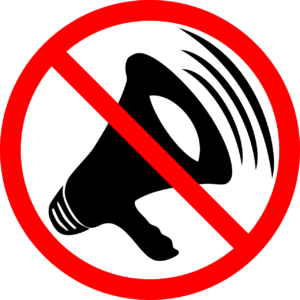Negative noise in the workplace
What is negative noise in the workplace? Yes, it is something I made up but yes, it is real. Negative noise in the workplace is about the negative intangibles that slow your productivity or keep you from doing your job. Negative noise is a workplace distraction. It is damaging and it spreads throughout.

Negative noise occurs in the absence of leadership. In the absence of leadership, employees will listen to the person speaking the loudest. In many cases, the person speaking the loudest is not speaking in the best interest of the organization. It is even worse if the person speaking the loudest happens to be that negative employee that finds something wrong with everyone and everything about the company.
My definition of negative noise: a workplace distraction that focuses solely on the negatives. Negative noise is the black cloud over the workplace.
It is likely we have all worked with someone that is dynamic and has the ability to gain the attention of others. Sometimes that person is a champion for the organization, other times, that person is the negative noise. The negative noisemakers speak under the radar to people throughout the organization. They are able to influence people in all departments and send their negative message throughout.
The negative noisemaker has always existed but they gain power and influence when there is a lack of leadership. In my experience, the negative noisemakers are often valued contributors to the team. They bring a strong technical skill set to the organization. The problem with the negative noisemakers is they know they are good at their job. They know they have the ability to influence others with their words and they rarely use their words to promote the strengths of the company or their coworkers. Rather than step-up and do the right thing, the negative noisemaker will fuel the rumor mill.
What can be done about the negative noisemaker? First, every organization must not only hire good leaders but provide their leaders with continued leadership training. Great leaders are not afraid of negative noise or its noisemakers. Skilled leaders understand negative noisemakers and are not afraid to have the conversation to shift the message to something positive. Strong leaders have the ability to coach them and teach them to use their influence for good, in a positive way. When all else fails, a strong leader has the ability to properly address a negative noisemaker. A strong leader will not allow the negative noise to infiltrate their team.
